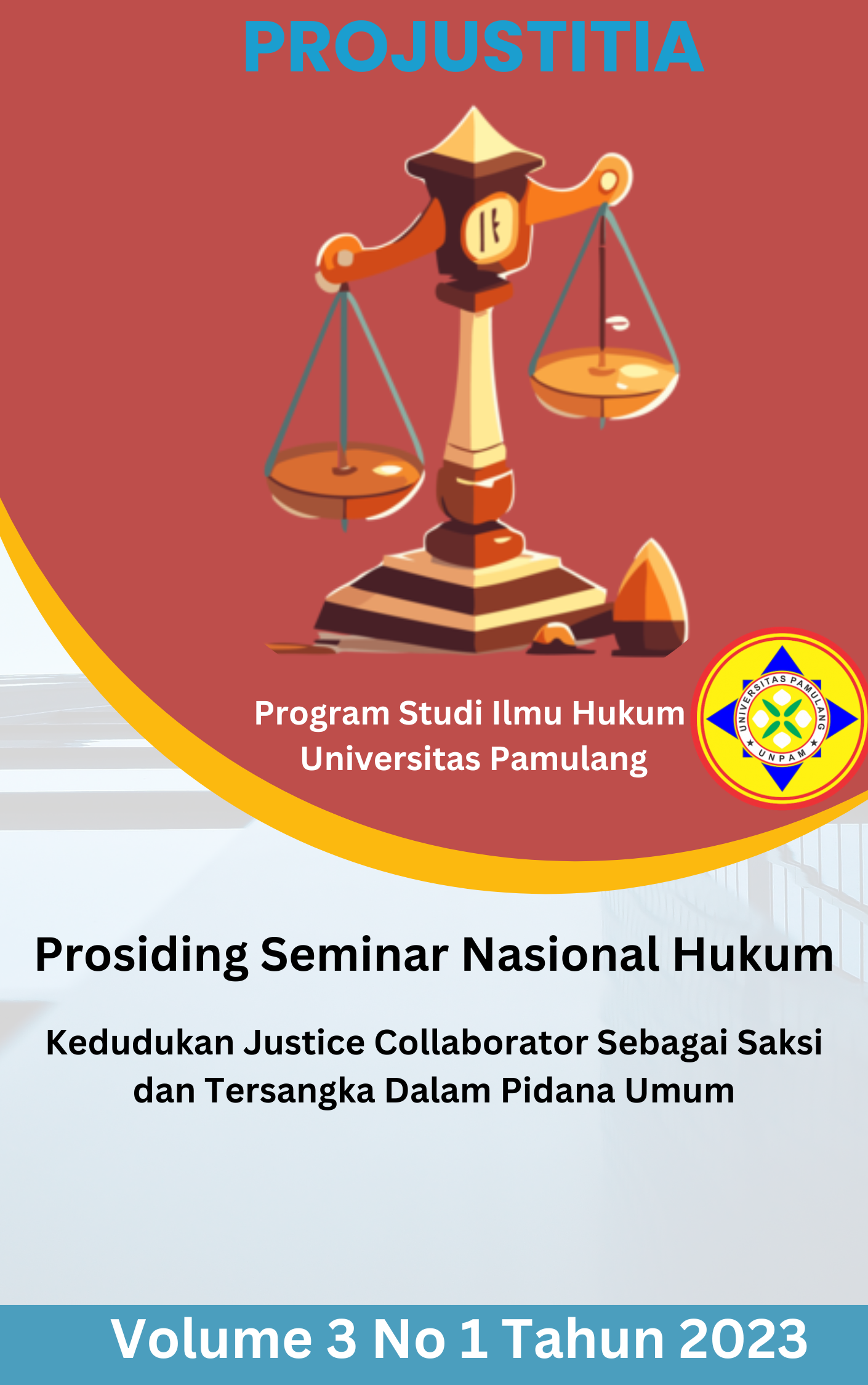ANALISA HUKUMAN PIDANA MATI DALAM PERSPEKTIF HAK ASASI MANUSIA DITINJAU DARI KITAB UNDANG-UNDANG HUKUM PIDANA (KUHP) DAN UNDANG-UNDANG NO. 39 TAHUN 1999 TENTANG HAK ASASI MANUSIA
Abstract
In the Indonesian legal system, the death penalty is one of the principal crimes listed in article 10 of the Criminal Code. The death penalty which is still enforced in Indonesia raises debate from various elements of society. The debate was divided into groups pro death penalty (retentionists) and groups against the death penalty (abolisionists). Those who oppose the death penalty view that the imposition of capital punishment is very inconsistent with the Indonesian Constitution which guarantees everyone's right to life. Philosophically, the right to life is the supreme right (the supreme rights) and natural because it is a right given by God to human beings. In this case, the opposing party strongly opposes the death penalty which is not in accordance with human rights as formulated in the 1945 Constitution, specifically Article 28 A which explains that every person has the right to live and has the right to defend his life and existence. While those who support, the death penalty is an effective punishment and provides a deterrent effect on the perpetrators of crimes and a deterrent effect on those who want to commit these crimes, so that the crime itself can be prevented by imposing the death penalty.
Keywords : Death Penalty, Human Rights, Retentionists, Abolitionists


